Focus on what you can control, not on what you can’t.
I remember reading Steven Covey’s The Seven Habits of Highly Effective People a few years back, and this statement really striking a chord with me.
Picture a small ‘circle of influence’ in the middle of a bigger ‘circle of concern’. Many of us have a tendency to worry about the entire circle, even though a big part of the circle is outside our circle of influence. Doing this is a waste of our time and effort, and the more time we spend worrying about the things we can’t control, the less time and energy we’re able to spend on the ways that our effort could actually make a difference.
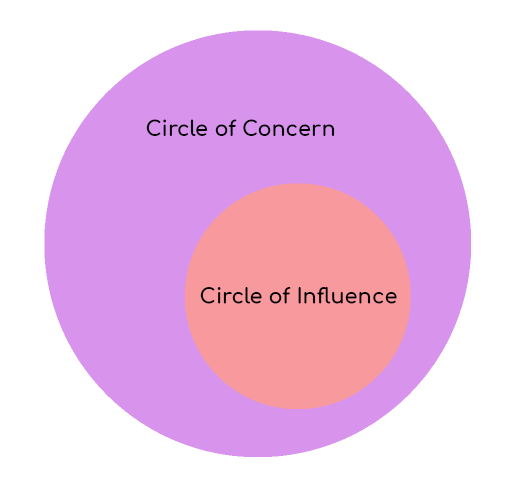
As we’re still in lockdown and you might understandably be worried about the future of your job and income, I hope to convince you to take this lesson to heart.
The present time is ideal to consider how to manage your career, rather than necessarily how to change career completely. A big change, given all the uncertainty in life now, might feel too risky and too scary. Managing your career and getting the most out of what you already have however, could be a great use of your time now, and could pay off big time in the long run.
Here are some ideas that might inspire you to embrace developing a focus on what you can control, instead of what you can’t control:
Gratitude and giving back
I’ve often found that my sense of control over my life and career comes back once I regain a sense of perspective. It’s so easy to lose this perspective and get wound up in small worries that are either unlikely to ever happen, or even if they happened, they wouldn’t mean the end of the world.
Also, the truth is there are so many people with far worse problems than yours. There are also probably a lot of things in your life that are going well, maybe you’ve even made progress somewhere lately, but do you stop up to actually notice and recognize this? I mean, really recognise this, and even celebrate it?
Practising gratefulness on a daily basis, as well as reaching out and helping others in need, are activities I admittedly have only started doing purposefully, quite recently.
Due to the Corona situation, there might be no better time to help others than right now. Think about how best you can help given your unique strengths and interests.
Can you help by listening to someone who is lonely, by running errands, or perhaps by donating money, however small?
Or can you re-think where you spend your money, and direct it to more sustainable and ethical businesses?
BAT exercise – blessings, accomplishments and talents
The best (and also research-backed) exercise I’ve ever come across to boost your gratitude, confidence and self-insight, is the following ‘BAT exercise’ (blessings, accomplishments and talents).
The best way to do it is to build it into your daily routine, and spend 5-10 minutes on it every day. Find a time that suits you, and revisit the list before you go to bed.
Doing this helps you recall past joys and achievements, and builds your gratitude and sense of perspective.
Write down as many things as you can in each BAT column. Some days you might only be able to think of one or two, and that’s okay.
Slowly start to think of ways you can apply your talents and strengths at work (or in life of course).
Key question: How can you link these insights with the task of taking on more responsibilities at work?
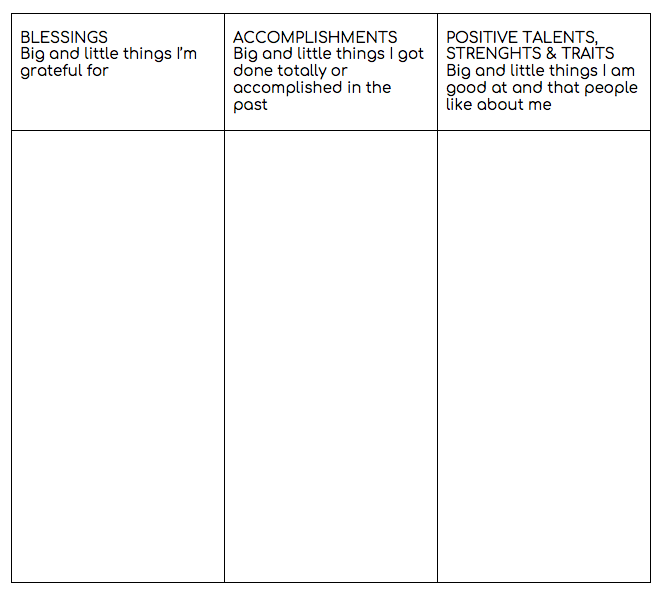
Take on new responsibilities
There’s a few reasons why taking on new responsibilities, in your career and also in your personal life, is a great idea, especially during the lockdown.
To start with, showing proactivity and willingness to take on new work puts you in a good light from your manager’s perspective. That’s quite obvious.
Secondly, and this reason is often more overlooked; doing so also teaches you more about what you like, what you don’t like, and what you’d like to do more of. In other words, by actively immersing yourself in new activities, you get a much better understanding of whether this activity is something you want to pursue more in future.
No amount of self-reflection can substitute for the direct experience we need to evaluate alternatives according to criteria that change as we do.
What I mean by this is that we learn best in iterative, multilayered ways, rather than by just ‘figuring out’ the plan.
It’s learning by doing, and you can get the ball rolling slowly by taking on a few extra responsibilities you otherwise would have ignored.
Connecting with people
Another way of taking control of your career is to consider the relationships you have at work. How happy are you with the relationships with your peers, superiors, clients and other stakeholders?
What small action can you do to reach out to someone in order to strengthen your relationship with them?
One of the reasons why having quality relationships at work is important is that it opens up the door to countless future opportunities that could be interesting – opportunities for collaborations, advancement, help in a crisis, or spotting a new need for something.
Relationships with people that aren’t personally close to you such as friends and family, are also often more likely to spark off new ideas and opportunities because these people haven’t ‘pigeonholed’ us. People that know us well often have a tendency to reinforce or even preserve our old identities, so if you’re after new opportunities, you should start building your work connections.
You could approach this more informally, and simply reach out for a conversation with someone about their responsibilities in the company, or you could approach it more strategically, and complete a big map of all the stakeholders, and how they inter-link.
One of the secrets of effective networking is to genuinely think about how you can help the other person. Think about what’s in it for them. Is there any way you can help them, for example by forwarding them an interesting link or article?
Conclusion
I believe taking control of your career starts with taking control of your mindset and your perspective. Then, using the insights and learnings from this to be proactive at work, and stretch yourself to really get to know and help others.
Taking control of your career happens less by grand design or careful strategy than by the small wins that result from ongoing practises.
I wish you the best of luck, feel free to get in touch and let me know if any of these ideas worked for you,

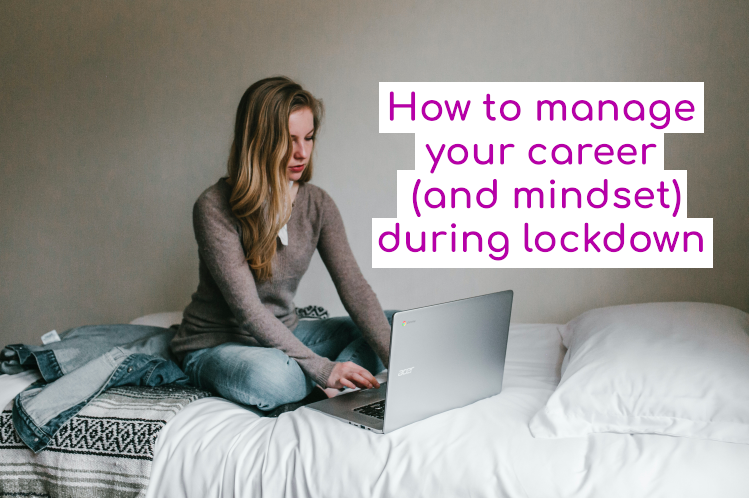



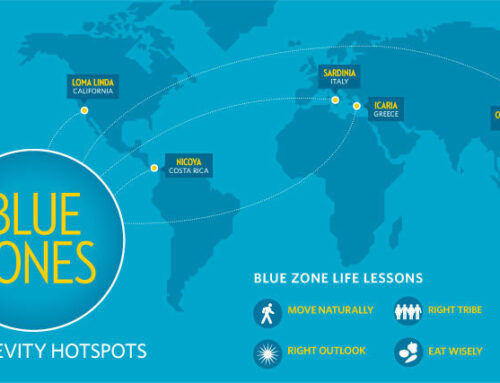
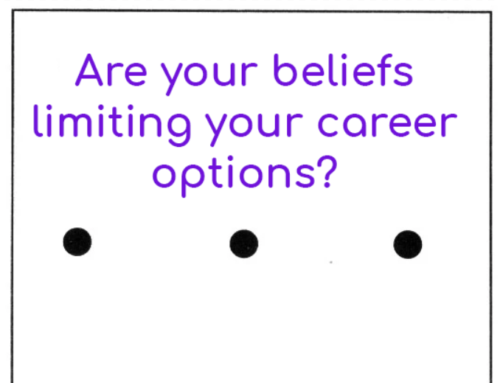
Leave A Comment